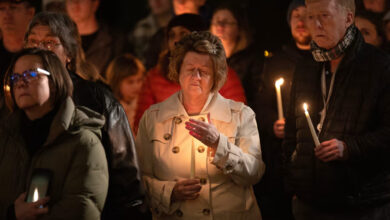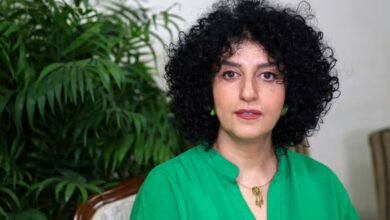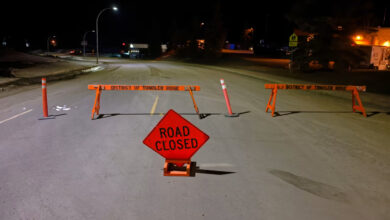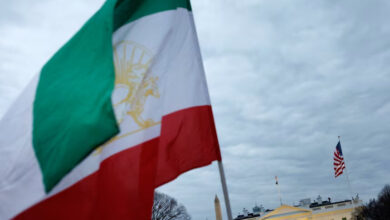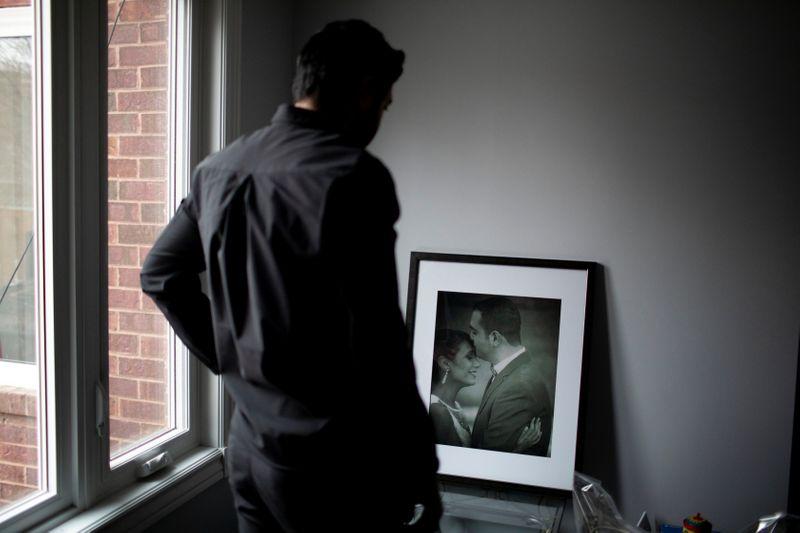
TORONTO (Reuters) – Grief-stricken relatives of passengers killed aboard an airliner shot down by Iran over Tehran last month are grappling in Canada with the daily challenges of long-distance funeral arrangements, empty homes, cars left in driveways and unpaid bills.
Iran admitted it shot down the Ukrainian airliner by mistake on Jan. 8, killing all 176 people aboard including 57 Canadians. The Canadian government said that 138 people on the flight were headed to Canada as their final destination.
Meisam Salahi’s younger brother Mohsen and sister-in-law Mahsa Amirliravi were passengers who died on the flight.
Salahi, 34, wants to return his brother’s car to the dealership where it was leased, deal with mortgage payments on the couple’s home and collect rent from their tenants. But without a death certificate – sometimes delayed after aviation disasters as local authorities identify remains – he has struggled.
“Technically, in Canada, he’s still alive,” Salahi said. “I don’t even know how many bills I have to pay.”
Many next of kin are in Iran, giving family and friends in Canada limited power in dealing with the victims’ estates.
For Amirali Alavi, whose mother died in the crash, traveling to Iran after the crash was a trek that included a dash to Washington to get Iranian consulate paperwork, leading to a four-hour ordeal at the US-Canadian border.
Alavi, 27, said he and his father were detained for questioning by US border agents before he was allowed to cross at two am. His father was denied entry and returned to Canada on foot while Alavi drove on to Washington alone. It was nearly two weeks before they could bring his mother’s remains back, Alavi said.
“We haven’t even started to deal with the aftermath,” Alavi added. “These past two weeks have been really tough emotionally, and at the same time, all the work we had to do, it didn’t leave us with much time to think about stuff we have to do in Canada.”
Immigration advocacy groups have criticized detentions of Iranian nationals at the US-Canadian border in the aftermath of an American drone strike that killed a top Iranian general on Jan. 3.
A Customs and Border Patrol (CBP) representative declined comment on the Alavi incident, citing privacy laws, but said allegations that the agency has detained dual citizenship Iranians because of their country of origin are false.
More than 100 Canadian government workers are assisting the families of victims connected with Canada on everything from managing DNA samples to repatriating bodies and getting legal advice and visas, said Omar Alghabra, a member of Canada’s Parliament tasked with liaising with the families.
On a chilly Sunday morning last month, a mosque north of Toronto held burial services for Sahar Haghjoo, 37, and her daughter Elsa Jadidi, 8. The entrance was lined with Canadian flags.
Inside, hundreds of mourners watched photos scroll on a screen. They showed Elsa as a baby, holding one foot, and then older, kissing her father on the cheek. She held a giant ice cream cone, then a school project. A final picture showed her sitting with her mother on the plane in the last few minutes of their lives.
In tears, her grandfather Habib Haghjoo said he would not wish what happened on his worst enemy: “This is unbearable.”
Reporting by Allison Martell and Moira Warburton; Editing by Will Dunham and Amran Abocar
Image: Meisam Salahi, whose younger brother Mohsen Salahi and sister-in-law Mahsa Amirliravi, were killed in the Ukrainian passenger jet shot down in Iran, looks at a photo of his brother and sister-in-law at his home in the Toronto suburb of Richmond Hill, Ontario, Canada January 31, 2020. REUTERS/Carlos Osorio

